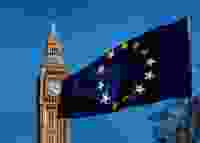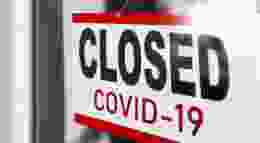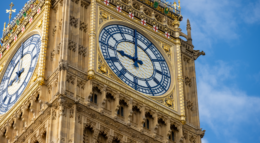
Brexit: the obvious errors
Last week MPs voted to temporarily vacate the parliamentary buildings; the increasing likelihood of a soft-Brexit suggests it might not be worth them moving back in, says Sean Walsh.
Providence is in the habit of using unlikely people to shape extraordinary events. She also has a sense of humour. These tendencies have come together in her puzzling decision to entrust the British people's instruction to disengage from the EU technocracy to the geography graduate and her next-door neighbour Mr Hammond, a man who can plausibly be imagined lamenting the introduction of the colour television as marking "a significant loss of grey". Unsurprisingly, these two have come together in a kind of grim symbiosis, the tragic consequence is that what was offered to them as an opportunity to be seized has become instead a problem to be managed. And managed very badly indeed.
Mrs May's first error was to fail to acknowledge the existential character of the 2016 referendum. You cannot answer the question "where do you want to go?" before you have answered the more fundamental question: "what do you want to be?". Those of us who voted to leave the European Union were not doing so on the basis of some utilitarian cost-benefit analysis. We were not attempting to calculate what growth levels were likely to be in 2022 if we were to be outside versus inside the EU. We were instead saying: this is the sort of country we want to be- free to be poorer if that is what we choose. The question of what you are is logically prior to the question of how prosperous you are likely to be. This is why so much of the current discussion is so frustratingly misconceived. It is as if a prisoner, having successfully appealed his wrongful conviction, should be expected to opt to remain handcuffed to his gaoler on the grounds that Crown statistics show that in five years' time he will likely be unemployed. That claim -true or false- would scarcely seem relevant. This, incidentally, would be the appropriate reaction to any "Treasury model" which purports to show that we would be better off within the customs union: as neither necessarily true nor false but as an expression of a sort of Stockholm-syndrome-by-spreadsheet.
The second mistake the Prime Minister is making is in assuming that when faced with a choice between two incompatible positions there will be some middle course in which can be accommodated whatever is best in both. There isn't, but the fallacy is an old and persuasive one: describe A (in this case Leave) and B (Remain) as two extremes and hold out for a supposedly reasonable middle course, C. But the people have charged her with A and no matter how many votes were cast for B they will not magic up a C. Her instruction is to enact a decision to leave and all those consequences which flow from that, including a release from the single market and the customs union, since membership of either is not consistent with A. I sometimes wonder (admittedly not for long) whether she has been reading too much Hegel: from the unstable opposition of thesis and antithesis emerges some stable synthesis. Now Hegelianism is a benign enough set of nonsenses when left to itself, but some of Hegel's successors made some very lasting mischief with the philosophical structures he bequeathed them. My advice to Mrs May is to leave well alone.
And we can be in no doubt that had the vote gone the other way there would have been no equivalent discussion regarding whether the UK had chosen a "hard Remain" or a "soft Remain". Mr John Humphries would not be pointing out to Prime Minister David Cameron that remaining in the customs union "had not been on the ballot paper". Rather the quisling classes (media included) would have banked the result on the Friday and proceeded with its slow-motion coup d'etat on the Monday. For this has been Mrs May's other mistake: to concede to the losers of the referendum the linguistic terms of reference of the subsequent debate. There is no "hard Brexit" or "soft Brexit" any more than there is a "hard pregnancy" as opposed to a "soft pregnancy". We should perhaps be gentle with the Prime Minister on this point since the replacement of Truth by "truth" is a consequence of the Enlightenment project and pre-dates even the rise of Donald Trump. But whoever controls the language controls the narrative; and whoever controls the narrative controls the timetable. The Remain strategy now becomes clearer by the day: to neutralize the referendum instruction via the simple device of filibustering it.
The process has not been without moments of dark humour of course. We have had the choreography of the tough Prime Minister summoned at 3am to Northolt to board a plane in order to genuflect before the eminence grise of the European nomenklatura Mr Barnier; her Michael Corleone tendencies then finessed by the sacking of her closest political friend for apparently not having illegal material on his computer; the defenestration of the Foreign Secretary for voicing an opinion on the major foreign policy issue of several generations and (my personal favourite) the refusal of the Prime Minister to give a straight answer to whether we are to remain in a version of the customs union whilst in the very same interview offering an opinion on the conduct of people not many of us have heard of at a private party none of us were even invited to. I wonder if there is a way of submitting this surreal tableau to the Turner Prize Judging Committee as a sort of thought-exhibit: it would probably win first prize.
But the fix is in, Lord Mandelson's pension is secured, and our vote will be ignored. Or so it seems today. Last week MPs voted to temporarily vacate the parliamentary buildings; unless providence has a surprise in store, it might not be worth them moving back.













